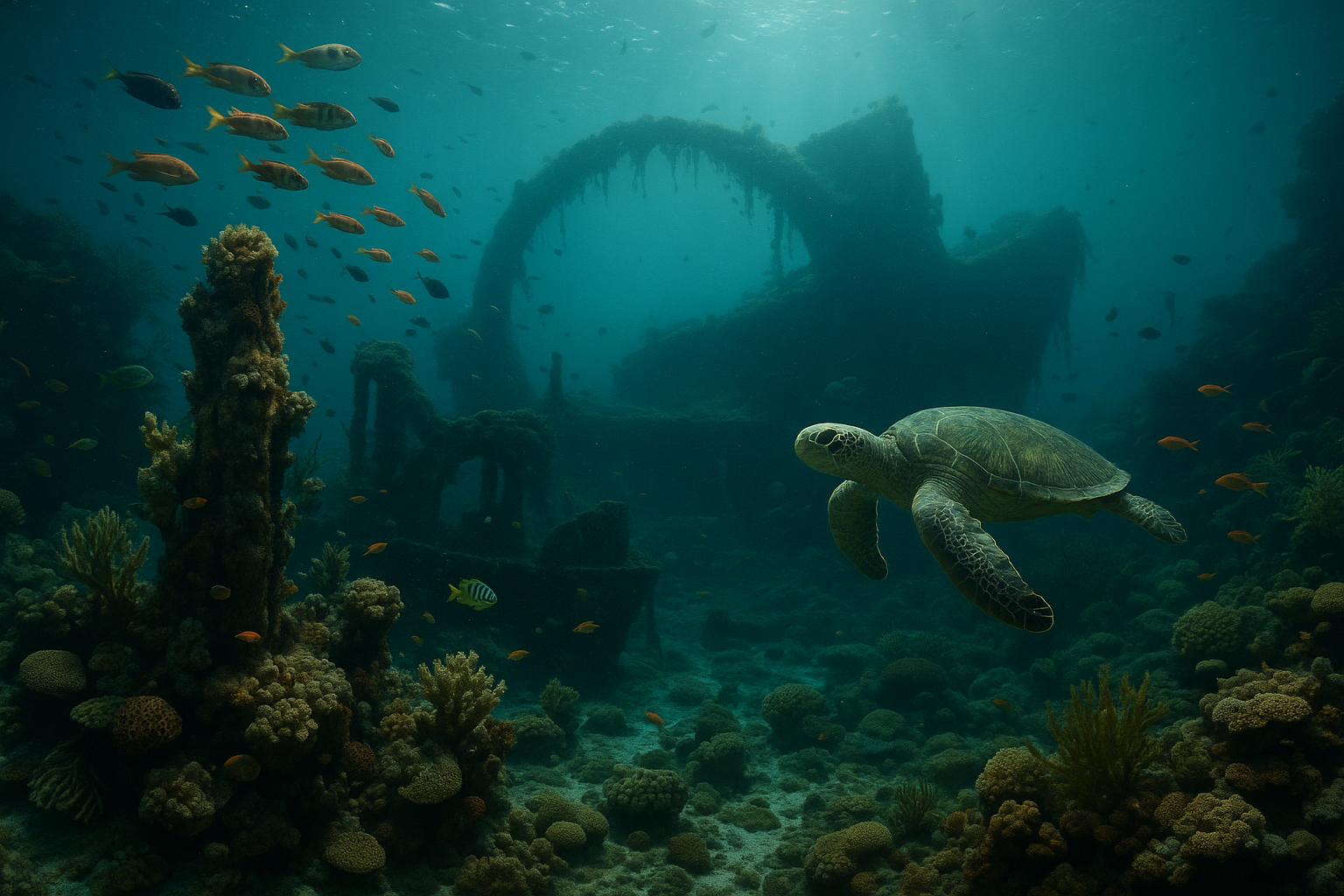In the vast, uncharted world beneath the waves, mysteries abound, capturing the human imagination for centuries. 🌊 As we stand on the brink of technological advances that allow us to explore the deepest oceanic recesses, we are only beginning to uncover the secrets of vanished underwater habitats. These forgotten worlds, once teeming with vibrant marine life, now tell tales of change, resilience, and the delicate balance of our planet’s ecosystems.
The ocean covers more than 70% of the Earth’s surface, acting as a giant, mysterious frontier. Beneath its azure waves lie submerged landscapes that were once thriving environments for myriad species. But over time, due to natural shifts and human influence, many of these underwater habitats have transformed, leaving behind enigmatic traces of what once was. From ancient coral reefs now buried in sediment to submerged forests that echo stories of a distant past, these habitats offer a glimpse into the rich history of marine life and the forces that have shaped it.
Our exploration begins with an examination of these submerged ecosystems. What causes a thriving underwater habitat to vanish? We’ll delve into the natural phenomena such as tectonic movements, sea-level changes, and climate shifts that have played significant roles in these transformations. Understanding these processes not only satisfies our curiosity but is crucial for predicting future changes in marine environments.
However, not all changes are natural. Human activities have accelerated the disappearance of many underwater habitats. Industrial pollution, unsustainable fishing practices, and climate change are leaving their marks on the ocean floor. As we explore the human impact, we’ll discuss both the visible and invisible consequences of our actions on marine ecosystems. How are species adapting—or failing to adapt—to these rapidly changing conditions?
One of the most striking impacts of vanished habitats is on marine biodiversity. Coral reefs, often referred to as the “rainforests of the sea,” are home to a staggering variety of life. When these structures vanish, the ripple effects are felt throughout the marine food chain, affecting everything from the smallest plankton to the largest predators. 🐠 What happens when the delicate balance of these ecosystems is disrupted? We’ll examine case studies that highlight the cascading effects of habitat loss on marine species, emphasizing the importance of conservation efforts.
Yet, amidst the losses, there are stories of resilience and hope. Nature has an incredible ability to adapt and regenerate, given the chance. Innovative conservation strategies and restoration projects are showing promise in reviving some of these lost habitats. From artificial reefs to protected marine areas, we’ll explore the creative solutions being implemented worldwide to restore what has been lost. What role do these efforts play in preserving marine biodiversity, and how can they be scaled up to address the broader challenges facing our oceans?
Finally, we’ll touch upon the broader implications of these underwater mysteries. The health of marine ecosystems is inextricably linked to the overall health of our planet. As climate change continues to pose significant threats, understanding and preserving underwater habitats becomes not just a matter of scientific interest, but a crucial component of our global response to environmental challenges. 🌍
By the end of this exploration, you’ll gain a deeper appreciation for the complexity and beauty of our oceans and the urgent need to protect them. We’ll unravel the enigma of vanished underwater habitats and highlight the collective responsibility we share in ensuring their survival. Are we ready to rise to the challenge?
Join us as we dive into the mystery and discover the profound impact of these hidden worlds on marine life. Let the journey beneath the waves inspire you to think critically about the ocean’s future and our place within it.

Conclusion
As we conclude our exploration of vanished underwater habitats, it’s clear that these submerged ecosystems hold the keys to understanding both Earth’s past and its environmental future. Once vibrant with coral forests, seagrass meadows, and intricate marine life, many of these habitats now rest beneath rising seas — silent witnesses to geological shifts, climate change, and human impact.
The true significance of uncovering these underwater worlds lies in what they reveal about adaptation and resilience. 🌿💫 Through marine archaeology and ecological reconstruction, scientists are rediscovering lost coastlines and extinct habitats, offering insights into ancient biodiversity and the rhythms of planetary transformation. Ultimately, unveiling vanished underwater habitats is more than studying what was lost — it’s a call to preserve what remains, reminding us that the health of the oceans is inseparable from the fate of all life on Earth.




